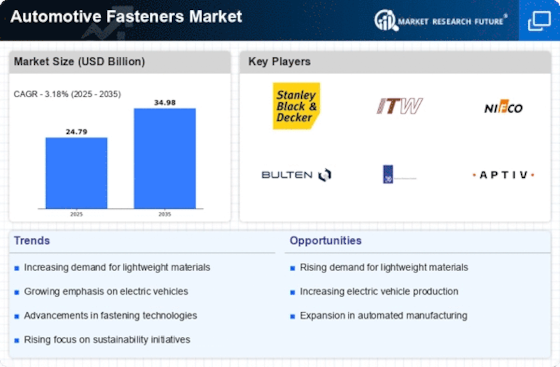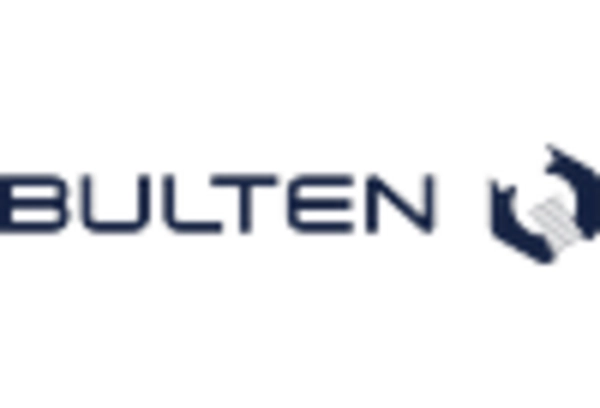Market Trends
Key Emerging Trends in the Automotive Fasteners Market
The automotive fasteners market has experienced enormous transformations in recent times as a result of disparate trends that continue to shape the industry. Among the most important motivations for these changes is a constant development of automotive design and technologies in car manufacturing. By increasing the demand for automotive manufacturers to improve vehicle performance, safety and fuel efficiency comes along with a requirement of upgraded fastening solutions that are reliable in harsh conditions. The demand for lightweight materials is increasing due to the push toward fuel efficiency, and thus acceptance of high-strength replacement material substitutes such as titanium and aluminum alloys in automotive fasteners has increased. However, these materials have two-fold benefits; they not only reduce the overall weight of a vehicle but also improve its structural strength that many industries are seeking today. Sustainable and environmentally friendly transportation practices. In addition, international efforts to promote electric and hybrid cars have also impacted automotive fasteners trends. With the increased adoption of these new propulsion technologies, manufacturers are beginning to rethink traditional assembly approaches in order meet the distinct dynamics of electric vehicles. Fasteners used in electric vehicles that secure the components associated with battery packs, electric motors and power electronics usually are customized to cater for this part of the market hence reflecting a change from general solutions. The emergence of Industry 4.0 and the growing adoption of smart technologies in automobiles have added an entirely new layer to the automotive fasteners market landscape. With the integration of sensing and connectivity, smart fastening solutions are now emerging as a significant trend in enabling manufacturers to monitor their fasteners’ health or state-of-performance online. This trend toward smart fasteners is one that has been fueled by the industry’s increasing interest in predictive maintenance, minimizing downtime, and improving overall production efficiency for automotive manufacturing. By the same token, globalization and supply chain interdependence have also significantly contributed to market dynamics in both global fasteners industry. Therefore, manufacturers are now more and more paying much attention to the possibility of improving their supply chains in terms of effectiveness as well as cost savings. This has resulted in an increase of strategic alliances and partnerships within the automotive fastener suppliers as well as OEM’s which have heralded a more integrated, organized approach towards production and sales.



















Leave a Comment